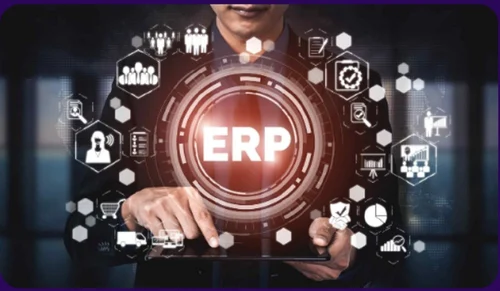Integrating Enterprise Resource Planning (ERP) systems with e-commerce platforms is not nice to have anymore in today’s fast-paced digital market; it’s a must for companies that want to be more efficient and grow. You can learn a lot about how this connection works by reading Erp Ecommerce Blog.Kristenly.com, which talks about its pros, cons, and future trends.
The Role of Erp Ecommerce Blog.Kristenly.com
ERP systems were first used to handle inventory, but now they are used for many other business tasks as well, such as finance, HR, and customer relationship management. Adding these methods to e-commerce platforms has several important benefits, including:
- Improved Efficiency: Automation of repetitive tasks like order processing and inventory management cuts down on the amount of work that needs to be done by hand by a large amount. This frees up workers to work on more important tasks.
- Real-Time Data and Analytics: ERP systems give businesses real-time information about sales, inventory, and customer behaviour, which helps them make smart choices and run their businesses more efficiently.
- Better Customer Experience: Integrating easily with CRM systems makes it easier to handle interactions with customers, which leads to better service and customer satisfaction.
- Cost Savings: By streamlining operations, ERP systems help lower operational costs, make it easier to handle inventory, and cut down on the mistakes that come with entering data by hand.
Important Things About Erp Ecommerce Blog.Kristenly.com
When ERP systems are connected to e-commerce platforms, they add several important features that help businesses run more smoothly and keep customers happy.
- Inventory Management: Web News Mantra says that automated inventory tracking helps keep the right amount of stock on hand, lowering the risk of overstocking or running out of stock.
- Order Processing: Good order management makes sure that orders are filled and delivered on time, which improves the entire customer experience.
- Management of Money: ERP systems offer complete money-related tools for correct bookkeeping, planning, and reporting.
- Analytics and Reporting: Advanced analytics tools give businesses useful information about how they’re doing, letting them spot trends and make decisions based on data.
Why integrating ERP is good for E-commerce
Adding e-commerce platforms to an ERP system has many perks that can change how a business runs:
- Increased Productivity: Automating routine jobs helps businesses run more smoothly, which leads to higher profits and more productivity.
- Data Accuracy and Consistency: According to The Web Magazine, centralized data management makes sure that data is correct and consistent across all business processes. This makes mistakes and problems less likely.
- Better Customer Service: A better customer experience is made possible by faster order processing, more accurate inventory updates, and easier contact.
- Scalability and Flexibility: Cloud-based ERP systems are great for businesses of all sizes, but especially small and medium-sized businesses (SMEs) because they are flexible and can grow as needed.
Also Read: Blog.Jabarsatu.id
Challenges of ERP Implementation
Even though it has perks, setting up an ERP system can be hard. To make sure merging goes well, businesses need to be aware of these problems:
- High initial investment: ERP software can be very expensive, and implementation and training costs can add up to a lot of money.
- Complexity: According to Web News Mantra, ERP systems can be hard to set up and maintain because they need a lot of time and money.
- Resistance to Change: Employees may not want to change how things are done, so good change management techniques are needed to get everyone to adopt the new way of doing things.
Plans for the Future of ERP and E-commerce
The future of ERP in e-commerce is being formed by new technologies and business trends that will make operations even better:
- AI and Machine Learning: These technologies can look at a lot of data to make predictions and automate boring jobs. This helps companies predict trends and make their processes more efficient.
- Cloud-Based Solutions: Cloud ERP systems are flexible, scalable, and cost-effective, so businesses can combine ERP and e-commerce without having to buy a lot of hardware upfront.
- Blockchain Technology: Blockchain improves data security and openness by keeping a record of transactions and interactions that can’t be changed. This is especially helpful for companies that need a lot of trust and safety in their operations.
Conclusion
Putting together ERP systems and e-commerce platforms is a smart move that has many advantages, such as higher productivity, better customer satisfaction, and big savings on costs. The Erp Ecommerce Blog.Kristenly.com gives businesses useful information, best practices, and the newest trends to help them deal with the challenges of ERP integration and make the most of the chances it opens up.
Businesses can make sure that their ERP systems not only meet their current needs but also set the stage for future growth and innovation in the ever-changing world of e-commerce by keeping up to date and using the newest technologies.
For more detailed information and case studies on ERP and e-commerce integration, visit Kristenly’s ERP blog.














